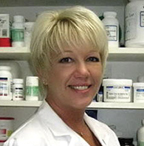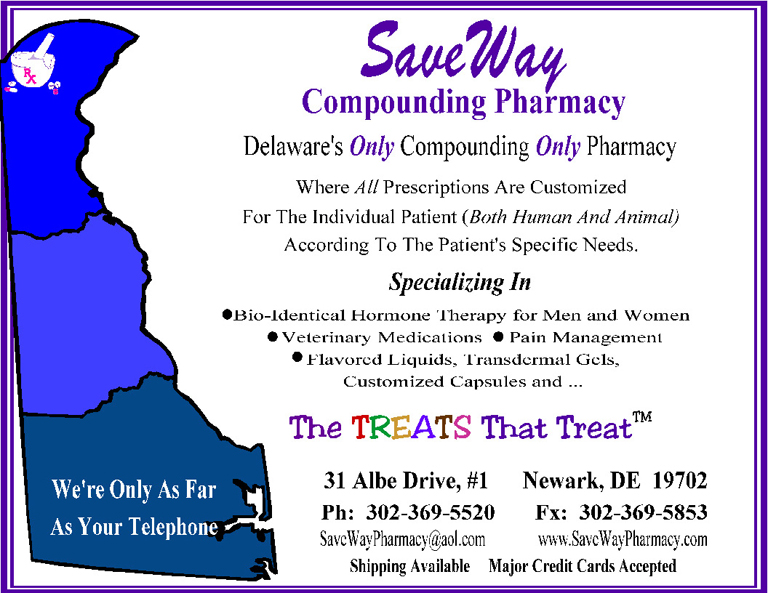Caring For Your Skin
 By Brenda Pavlic, CPhT
By Brenda Pavlic, CPhT
According to Wikipedia, our skin serves to protect
in that it is an anatomical barrier from pathogens
and damages between the internal and external body defense.
It provides insulation, temperature regulation, sensation, and aids in the synthesis of vitamin D. However, to most of us (whether we admit or not) we don’t consider our skin for its complex function but rather as a barometer for how we see ourselves. As we grow older, our skin will begin to show signs of aging due to the passage of time, exposure to free-radicals and excessive sun exposure. While one may feel vibrant and young on the inside, her skin may reveal a different story altogether.
Every year we spend billions of dollars on creams and lotions
and potions that promise to rid us of fine lines, crow’s feet…
frown lines, laugh lines, wrinkles, loss in elasticity, puffy eyes, dark circles, age spots, blotchy skin, etc. While many of these products lack scientific research to back their claims, there are scientists around the world testing ingredients, new and old, for their effectiveness in reducing oxidative stress, restoring moisture, undoing damage, and promoting the production of collagen and elastin. Using products on the skin that contain clinically proven ingredients along with the proper diet for your skin type, regular exercise, adequate rest, and a combination of supplements can help to restore healthy, glowing, younger looking skin.
The skin is extremely susceptible to free-radical damage, both from aging and exposure to elements in the environment. Aging skin will become wrinkled, sagging, rough, dry, dull, and lack good healing response. In order to restore the skin’s healthiest appearance, one must repair the damage induced by free-radicals, provide anti-oxidant protection, restore moisture, enhance collagen, elastin and keratin production, and improve the skin’s ability to heal.
Derived from the sugar cane, glycolic acid is considered
one of the most rejuvenating fruit acids used in skin care.
Hyaurlonic acid is another important and innovative ingredient used due to its ability to attract and hold moisture. Both provide critical antioxidant protection to the skin and help to restore texture, color and moisture. Years and years of research have shown that vitamin C and E are especially important in preserving and repairing the skin. Green tea leaves contain polyphenols that are recognized as potent antioxidants and excellent scavengers of free-radicals. Idebenone and ubiquinone (forms of COQ10) help to prevent free-radical damage in the skin’s surface lipids. Pomegranate may help to reverse visible signs of aging by promoting the thickening of the epidermis. It also prolongs the life of fibroblasts, which are cells in the dermis which produce the skin’s structural fibers. These are just some of the active compounds being used in cosmeceutics.
Even though pro-longed sun exposure can indeed do damage to our skin,
some time in the sun is necessary in order for us to absorb proper vitamin D levels.
The major biologic function of vitamin D is to maintain normal blood levels of calcium and phosphorous. Vitamin D aids in absorption of calcium, helping to form and maintain strong bones. Recently research has shown vitamin D may protect against osteoporosis, hypertension (high blood pressure), several auto immune diseases, and some cancers. It is recommended that we get approximately twenty minutes of sun exposure a day in order to maintain the proper blood level of vitamin D. It is important to mention that many of the products we use on a daily bases, such as body lotions, make-up, hand creams, etc. have sunscreens in them. This will affect how much D is actually being absorbed. Alternately, ingesting foods rich in vitamin D can also help to maintain the level needed for optimal health.
The skin is the body’s largest organ and one of its most complex in function and structure. It is vulnerable to free-radical-induced stress that will manifest over time as wrinkles, dryness, thinning, discoloration and damage. Fortunately scientists are hard at work formulating and testing new and innovative ingredients that can improve the overall health and appearance of our skin. Diligent daily use of proven topical agents coupled with proper diet and nutrition can leave your skin looking its best.
Testimonials:
I would like to extend my gratitude to you both for making my days better. Your “recipe” is indeed fantastic. ~ DM
Through your dedication, you and your staff have been a blessing beyond words for us. ~ SL
I’ve not seen this level of caring and compassion in a long, long time. You’ve re-established my faith in the system. ~ HH
Brenda Pavlic is a nationally certified pharmacy technician and co-owner of SaveWay Compounding Pharmacy in Newark, DE. With more than twenty-five years of pharmacy experience she has furthered her career with extensive training and education in Pharmacy Compounding, Women’s Health, Cosmeceutics, Pain Management, Aseptic and Veterinary Compounding. She has published articles and presented seminars both locally and nationally to healthcare practitioners. Her experience and education provide her with skills needed to develop formulations that ease medication administration, improve compliance and ultimately result in positive outcomes for patients.
SaveWay Compounding Pharmacy
31 Albe Drive; Unit 1
Newark, DE 19702
302-369-5520
[email protected] * www.savewaypharmacy.com
Hours: M-F 9am—6pm, Sat 10am—2pm, Closed Sunday


